Cousin Mouth‘s anticipated album MayflowerPeacemakerHolyredeemer, drops today. It is both a strong statement and a gentle touch- carefully articulated, but not overdone. It is effortlessly meaningful and significant, a force of creativity, collaboration, and friendship.
Alex Burns, lead vocalist, guitarist, composer, and producer, shares these qualities. A towering figure with long blonde hair, his presence is undeniable- almost intimidating- and yet it is softened by his warm demeanor and genuine investment in his art and the communities that he is a part of.
However, Burns will be the first to tell you that he does not deserve all of the credit. In Medusa, Cousin Mouth’s debut album, (when the group consisted of Burns and close friend/collaborator Lex [Donald Lee Roland II]) and with their latest project, he serves as a musician and a convener to bring his vision and process together with others in order to create a manifestation of the group that is Cousin Mouth.
On MayflowerPeacemakerHolyredeemer, each track features collaboration between at least four or five artists, an organizational feat in and of itself, serving as a testament to the personal and creative relationships that made such an accomplishment possible.
In the band’s words:
“Cousin Mouth’s sound is inspired by artists like James Blake, D’Angelo, and Todd Rundgren; moody and sultry R&B with some pop influence…Their signature groove and beat-based style, mixed with a psychedelic-dreamy sound, formulate the unique aesthetic Cousin Mouth is known for.”
Right from the first track, MayflowerPeacemakerHolyredeemer sets the stage for a contemplative and remarkable musical experience, an offering that asks listeners to invest themselves the work, to slowly let it simmer and see what it brings to mind. In such a tumultuous time in the world and in our lives, a moment of constructive self-reflection is just what the doctor ordered, and latest from Cousin Mouth provides a fitting soundtrack if I could ever imagine one.
Read our conversation with Alex Burns. MayflowerPeacemakerHolyredeemer is available to download and stream on digital music platforms worldwide, while the vinyl may be purchased on Bandcamp.
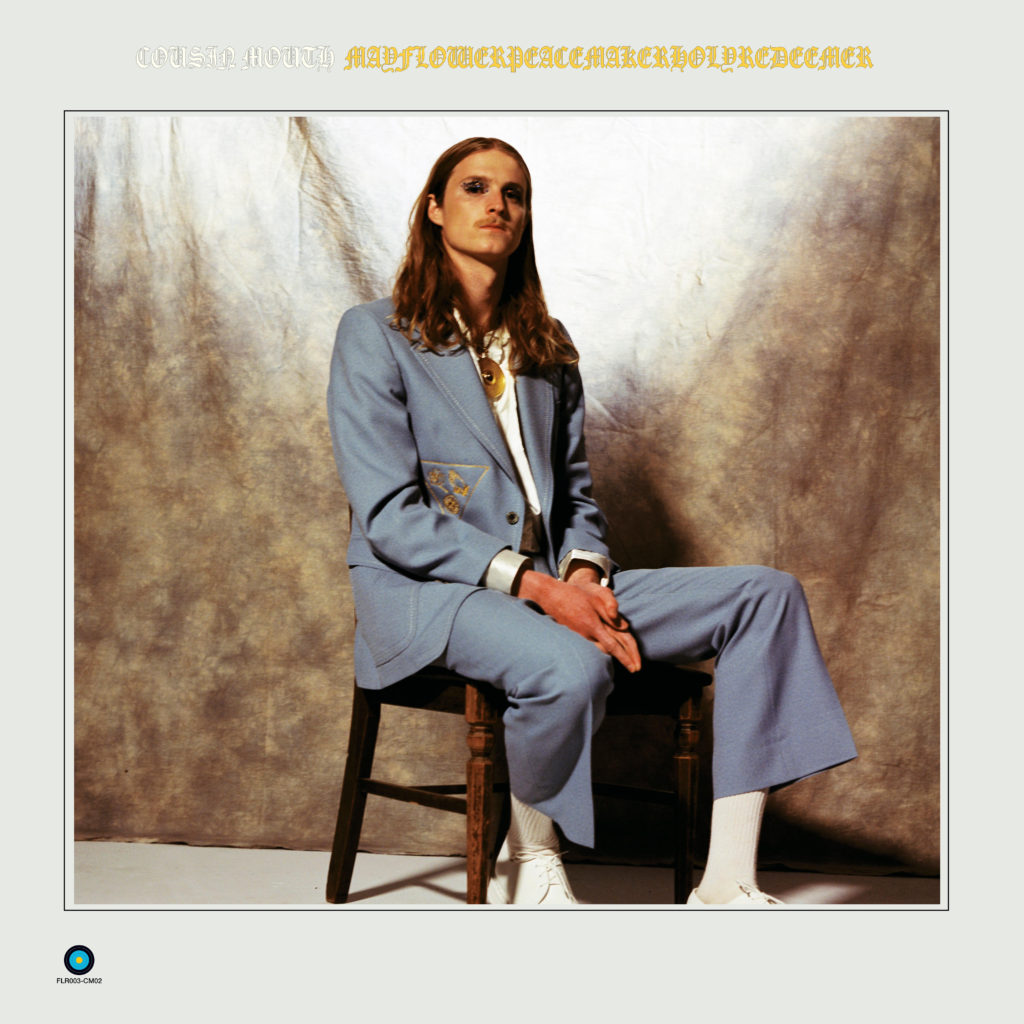
Who you are, what you do?
I’m Alex Burns, lead singer, guitar player, composer, and producer of the band Cousin Mouth.
Take us to the beginning of this project, what set you off on your journey to create this record?
One of the first songs that I wrote on the record is called “Lucifer in the Flesh.” It was soon after Trump got elected; Don Roland and I had just released Medusa (the first Cousin Mouth album) and I was working on new stuff simultaneously (I always try to keep working on new stuff consistently).
I was writing and reflecting on a bunch of shit, and writing some more “politically charged” music, at least in my mind. I wrote that song from the direct quote, a current or former Trump member administration had called him, verbatim, “lucifer in the flesh,” that had to be late 2018.
As far as how any project comes to fruition, I try to let time do most of the work. Around 2018 I was working on stuff that was very intentionally different from what we did on Medusa, as far as writing style as well as content.
What were the different themes that emerged throughout the process of writing the record?
The broader themes continue to be relevant; I didn’t write any of the material during COVID, but it still seems to speak on the situation in many ways. A lot of it is about relationships, and our relationship to ourselves. I intentionally tried to make this project a bit heavier and more introspective, not necessarily “angsty” but definitely an opportunity to look in the mirror. I think a lot of the music and lyrical content is very self-reflective.
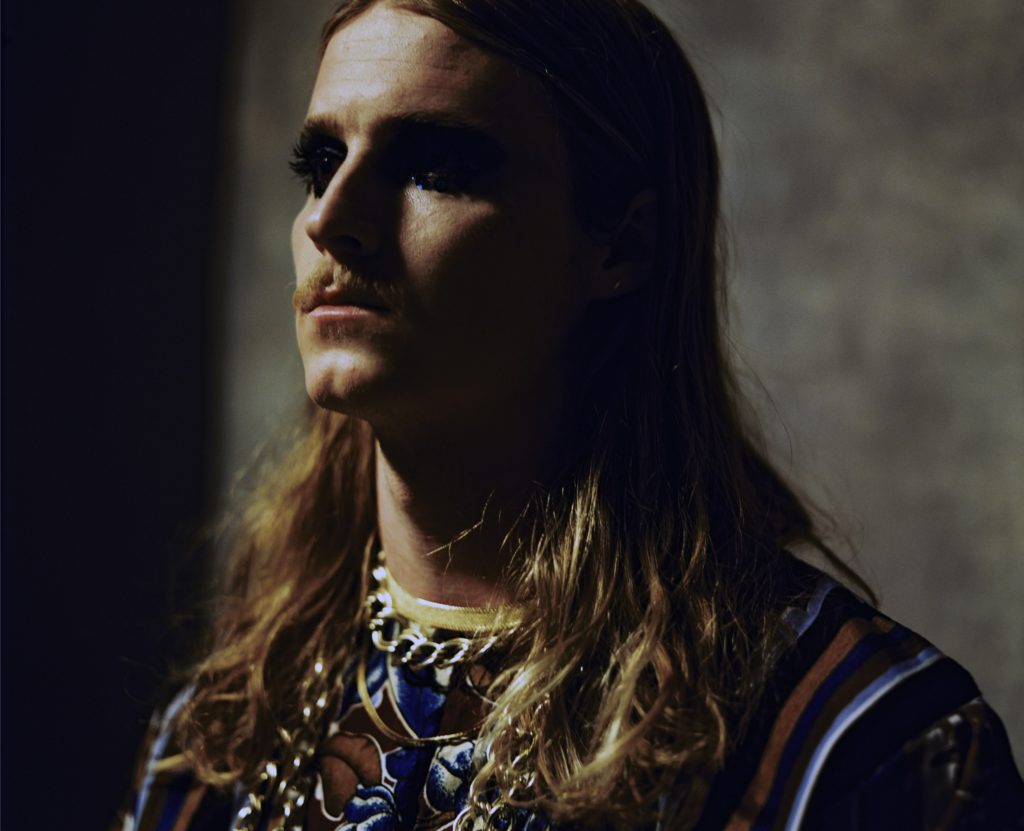
As far as the current situation that we’re all in now, we’re kind of forced to do the work of dealing with ourselves everyday, and with each other everyday in very specific ways. And that’s what relationships are all about: when you’re forced to just “be,” with yourself and with others, what comes out?
I think that’s a lot of what I was writing about, and just digging into the moments of more somber reflection, realizing that sometimes how you have acted in situations with yourself or with others, those aren’t always your brightest moments. It’s not all necessarily “fun.”
So it seems like you were writing the material over the last few years, and some of the themes and content were contextual and temporal, while others might have evolved in meaning and significance even after they were written, within the changing world and the current context of COVID, etc. Is that accurate? What did you discover about the songs, perhaps even after you recorded them?
I think it’s more just the added context of the world around us. I think the work itself was meant to have a certain amount of universal relevance, at its very core. We didn’t make it knowing that this all would happen, you don’t need to be in a pandemic to know that if you say some hurtful shit to someone that it’s going to hurt, or that depression can be debilitating, or any of that.
It just so happens that over the year and a half since we recorded this, all of the sudden everyone is being forced to have these tougher conversations with themselves. I think that was something learned for sure; that the tough stuff is going to be tough regardless of the state of the world around us, and the only way to deal with it is through these quiet moments of reflection, which is what I was trying to capture and explore.
Right, and so the concept of self reflection has become even more poignant in the context of a global pandemic, and how we all deal with that individually and collectively.
In terms of the creative process, how did it evolve from the first project through this newest one? Could you describe that more for us?
We recorded this project through a solid three months or so in Summer 2019. As I mentioned earlier, I really intentionally wanted it to be something sonically different from the last project. Not out of any rejection of the old sound, I had just been listening to a lot of different stuff, a lot of Todd Rundgren, a lot of Alice Coltrane, a lot of more spacey, left-field jazz shit. So I was really thinking in terms of how one should go about making something that is both spiritually and musically moving, and mind you this was within the pre-pandemic time.
I wanted it to be something really big, and I wanted it to feel very visceral. I wanted it to feel like people were listening to a lot of musicians that really do this shit for real, and that was the result of a lot of the stuff that I had been listening to at the time. When you get people’s spirit in a room, there’s something palpable about that, and that’s what I wanted to do.
The production is pretty extensive for one thing, (laughs), there are at least 5-6 instruments on each track. And that was the intention, like “let’s make this big.” I wanted it to be very visceral, very ear-catching, but also lyrically jarring as well as it relates to the content that we talked about earlier. I wanted it to be something that you can get lost in, but also feel at a very core level.
It’s like the explicit and the implicit, the ethereal nature of the music combined with the more pointed nature of the songwriting.
Yeah, that was the idea anyway.
How did it feel to create this project with so many other people? Was it difficult to intentionally relinquish some of that creative control, or did that come pretty naturally for you?
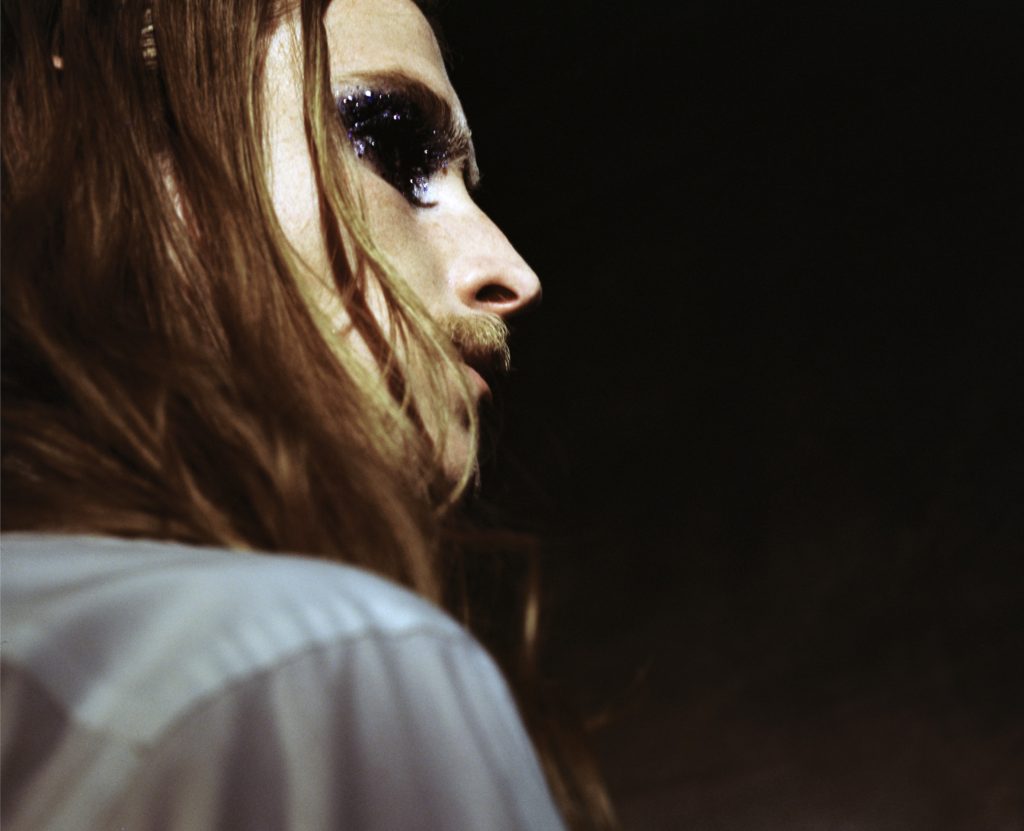
All of the people that are on the record, they’re individually powerhouses in their own right. It’s truly mind blowing to me, I count my stars every day thinking about having them join me on this record. They’re not only extremely talented, but I also consider them some of my closest friends and family.
In that way, it’s all just been incredibly lucky. When you see us play or even just hang out together, you can tell that our connection goes deep.
I knew from the outset that if I was going to have these incredible people be a part of the record, I wanted them to bring their whole spirit into it, as much as they were willing to give. I’m very fortunate that they did, and that’s also a result of me knowing what they were all capable of, which meant trusting them in the process.
I did have to relinquish a bit of that, but it’s more of a “sense” of control than wanting to call all of the shots, that’s not really how I create anyway. When you have so many people that are as strong and spiritually driven in their practice, it’s not fair to that practice to have an overly prescriptive approach to the collaboration. Everyone did their own thing, and it became a collective sound that really spoke to the strengths of every person in the room.
What, if any, conversations were had about the thematic elements of the record? Because it sounds like it’s not just about the music, but also the messages in the music and the type of energy that everyone is trying to be a part of together.
Yeah, I mean luckily I’ve known most of these people for so long, at least five years or so, which is remarkable in and of itself to have such sustained and meaningful relationships with all of them. Because of that, I feel like we’ve been growing and conversing together for quite a while, and the comfort that we felt with one another was definitely a part of the process.
First and foremost, we have relationships as people and as friends, and also confidants and like-minded individuals, which is really what comes first even before the music. How we create with each other is almost a tangent of that, and it comes more naturally just because we all are in some ways speaking the same language already. We are people with each other before we are musicians and that’s really important to me as an artist. I don’t feel comfortable working with people that I don’t have a kindred spirit with, that’s not creatively fulfilling to me. I think that played a big role in this record, was just the relationships that we already had with one another, and the trust that comes with that.
I’m really curious about the name and how that came to be, could you talk more about that for a moment?
There are a lot of different ideas behind it. For one thing, it’s intentionally meant to be cumbersome, it’s kind of a tongue twister.
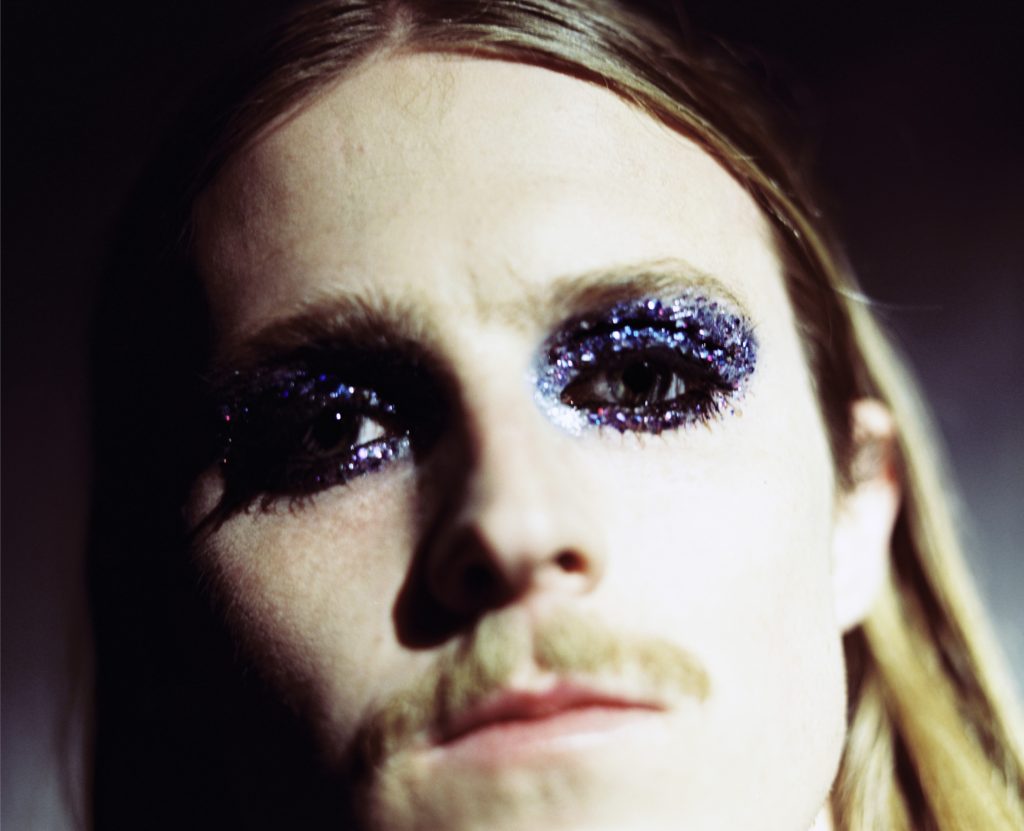
Each part of the name (Mayflower / Peacemaker / Holy Redeemer) individually are meant to be these sort of spiritual characters, different aspects of the creative voice from which the entire project was written.
There’s sort of a persona-like nature to it; there are some pretty distinct types of sounds and tones that are present throughout the record, and I think that stems from the music coming from the same place, but through different perspectives, all speaking to similar themes in a more-or-less unified way.
“Mayflower” is sort of a normal, everyday reflective type of presence; “Peacemaker” is more of a spiritual, universally minded perspective; and “Holy Redeemer” is more out there, eccentric, a mover and a shaker. The ideas are somewhat abstract, they feel more fleshed out in my head, but the main idea was how do you come at something from many perspectives at once, while still making them feel distinct when further dissected.
I really latched on to the “Mayflower” part for some reason, thinking about the ship we learn about in history class and whether or not that had something to do with it.
There are a lot of different things in there. Growing up in Massachusetts, I can say that was definitely a part of the layers. And then also, on a very specific and personal note, at the time that I started writing some of it I was living on Linwood, and at the time there was a Black gospel church called “Mayflower” right next door. It’s since been demolished, but I definitely would hear the music coming from there often and the spiritual connection to that memory is somewhere in there as well. But yeah, there are many things that I was trying to fold in, and I’m sure people will find their own meaning themselves.
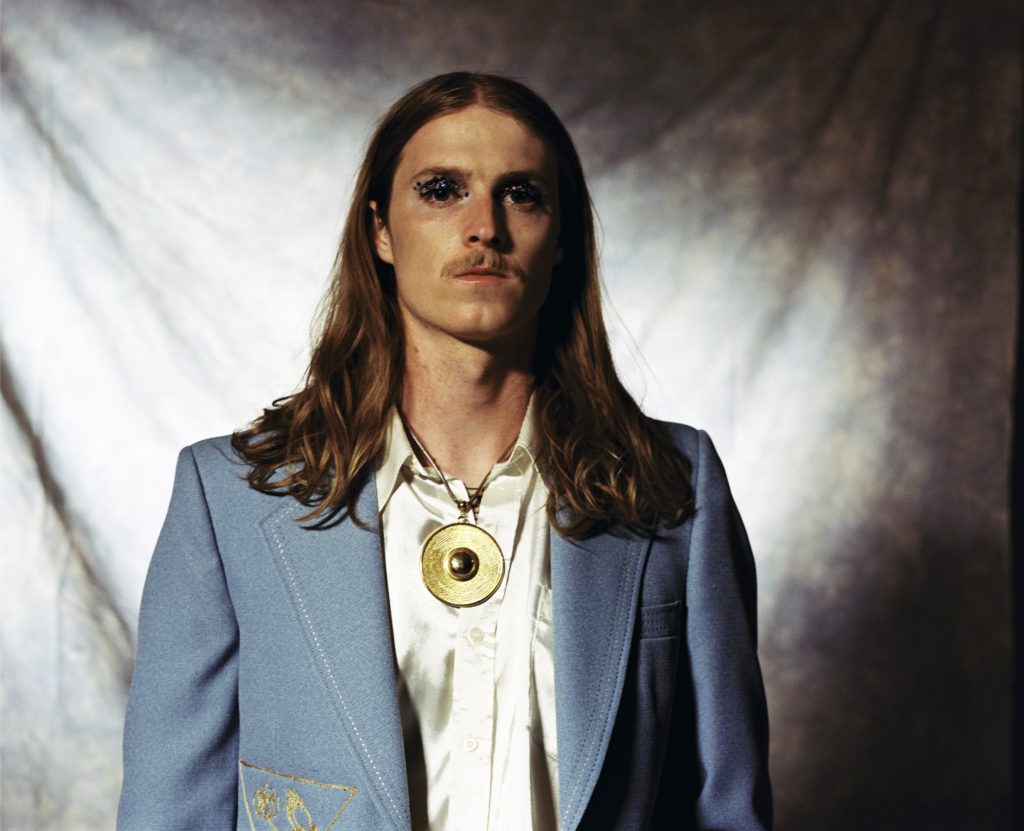
How would you like people to experience the project? You can be as ambiguous or as specific as you’d like.
There’s an interview that Earl Sweatshirt did about one of his recent projects, where he explains that he made the songs shorter partly in reaction to the shortened attention spans of listeners today; as long as it’s attention grabbing, or even like spirit-grabbing, the length doesn’t matter. I can understand that for sure, but for this project I almost took the opposite approach: The songs are pretty long, so in terms of how people experience it, I kind of wanted people to have to really intentionally sit with it, be slow with it.
Of course it’s a very individual experience, there’s no single right way to experience it. The project covers a fair bit of sonic ground in terms of the aesthetic range. So I guess I would say experience it quietly, but at times the music can also get pretty big and intense, so really I just want people to sit with it. I just think that there’s a lot for people to hear.
For me personally, I think that it should be cranked very loud, in an all-encompassing type of way, and not necessarily experienced at a club or something like that. The way that I’ve re-listened to it recently in the last few weeks, I’ve just had it blasting at my house. Find a quiet. comfortable place and turn it up really loud.
Right, so set aside some time for it, and play it loud so it’s the main thing that you’re focusing on. I also appreciate the Earl Sweatshirt reference, and the commentary on the trends in music listening and how creators address those trends.
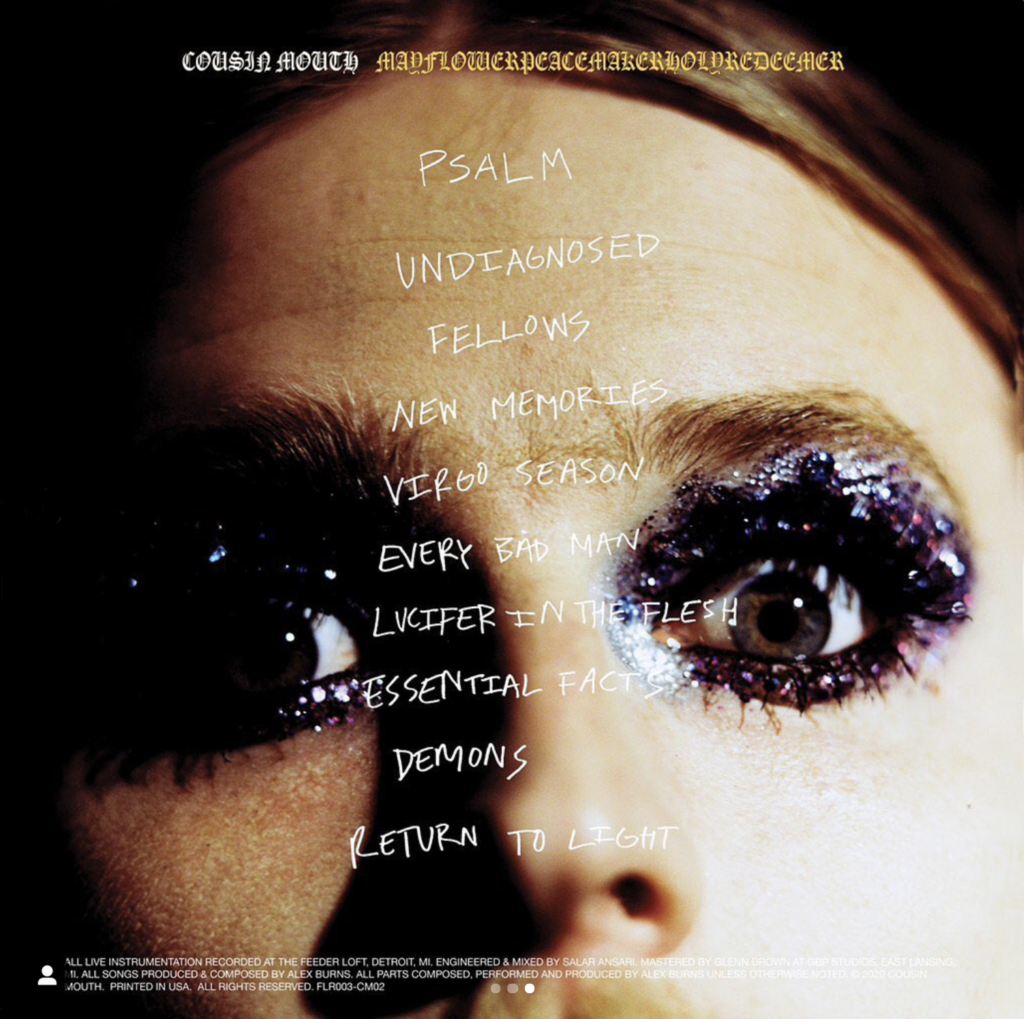
Is there anything else that you’d like to add? Anything that you wish I’d asked you about?
I definitely want to shout out Salar Ansari and Luis Resto; the project is coming out through Feeder Loft, which is a pretty new venture for them as an extension of their space. We recorded the project there, and relating to some of the things that we talked about earlier, I’m just really proud of what we did there, and basically the reason why we’re putting it out through them is because we’ve built this strong personal relationship with them and their space.
I think that’s a very natural extension of the things that we’ve already talked about, and a testament to the fact that Detroit is a city where creative relationships like that can be built, and can thrive for each other by each other. That’s a very important thing to me and the band, and the music reflects that. Feeder Loft itself reflects a lot of those values, like if you do the work and you have a strong presence of community, anything is possible. And that’s really a feeling that I have about music in general.
All photo credits, by Andre Moore.
The post New Music: Cousin Mouth Releases Album “MayflowerPeacemakerHolyredeemer” appeared first on PLAYGROUND DETROIT.
